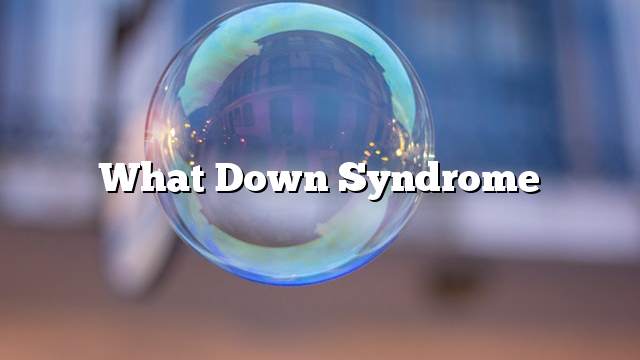Down’s syndrome
Down Syndrome is a congenital disorder caused by the presence of an extra chromosome in the cells of the body, which causes varying levels of mental disability and physical imbalances, and it is recommended to follow the patient constantly, where he is more vulnerable to several diseases, and provide a family atmosphere and professional suitable for him, Syndrome and its causes and symptoms.
Types of Down Syndrome
Down Syndrome has three types:
- The Twenty-first Triangle: Chromosome 21 is repeated three times instead of twice in each cell, making the number of chromosomes 47 rather than 56 chromosomes, which accounts for 95% of Down syndrome.
- Chromosomal Transition Type: Here chromosome 21 is broken down and attached to another chromosome, which accounts for 4% of Down syndrome.
- Type of mosaic: It accounts for 1% of Down’s syndrome, and there are two types of cells in the patient’s body, some of which contain the normal number of chromosomes 46, some of which contain 47 chromosomes.
Cause of Down Syndrome
The genes of the human body are made up of cells and each cell has a nucleus for gene storage. These genes carry the symbols responsible for inherited traits and are grouped into a rod known as chromosomes or chromosomes. The child usually inherits genetic information from both father and mother in a total of 46 chromosomes 23 From the mother, and from the father.
Down syndrome occurs after the cells begin to split after the fertilization of the egg in the uterus directly; natural cells contain 46 chromosomes, and there is a defect in the division of chromosome number 21 in some embryos, causing Down syndrome in one of the species listed in the introduction.
Symptoms of Down Syndrome
Physical manifestations
- Transverse AC in the eye incision with extra skin in the inner eye angle.
- White-colored spots in the iris (brushed spots).
- Small chin area abnormally.
- Flatten the nasal bridge.
- Fold one palm rest.
- The appearance of teeth due to inflated teeth and small mouth cavity.
- Small head size.
- Palace in the length of the neck.
- Loosen joints.
- Weak hearing.
- Forgiveness.
- Increase the large finger between the fingers and the finger that follows.
- Congenital heart defects.
- Thyroid dysfunction.
- Some health problems, such as Alzheimer’s, leukemia, testicular cancer, and unstable chemical balance due to imbalances of hormones, enzymes and minerals.
- Weakness of immunity.
Mental manifestations
- Slow response.
- Delayed pronunciation.
- Mental retardation, which varies depending on the condition of the patient, and the degrees in the: full, severe, average, and moderate, and it is worth noting that the IQ of people with Down Syndrome is higher than the other patients.
